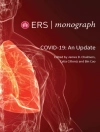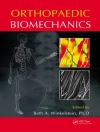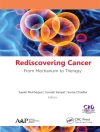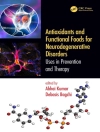Now in its fully revised and expanded second edition, this textbook remains the definitive resource on pancreas transplantation. Enlarged, updated and improved, it consists of 93 chapters over 11 sections, with chapter authors who are recognized international leaders in their fields and represent institutions from five continents.
Since the publication of the original edition in 2004, substantial progress has been made in the field of pancreas transplantation, specifically in regard to standardization of operative techniques and immunosuppression; significant improvements in patient and graft survival rates; and improved diagnosis and therapy of graft rejection and recurrence of disease. Pancreas transplants are no longer primarily performed in the USA and Europe for Type 1 diabetes mellitus; over the past 15 years, they have been performed with increasing frequency worldwide and also for Type 2 diabetes mellitus.
The new edition of this textbook covers all aspectsof pancreas transplantation: indications, recipient categories, surgical donor and recipient techniques, living donor transplantation, postoperative management and follow-up, post-transplant complications and malignancies, immunosuppression, treatment and diagnosis of rejection, impact on endocrine function and secondary complications of diabetes, recurrence of disease, quality of life, economic issues and overall outcome results. In addition, state-of-the art chapters focus on the classification, epidemiology and pathogenesis of Type 1 and 2 diabetes mellitus as well as on other beta-cell replacement therapies including islet auto- and allo-transplantation.
This textbook is the primary reference on pancreas transplantation for transplant surgeons (established and in-training), pancreas and HPB surgeons, diabetologists, endocrinologists, gastroenterologists, pancreatologists and other health professionals with a focus on transplantation and diabetes (cardiologists, neurologists, urologists, ophthalmologists).
表中的内容
Diabetes Mellitus: Classification and Diagnosis.- Epidemiology and Pathogenesis of Diabetes Mellitus Type 1.- Epidemiology and Pathogenesis of Diabetes Mellitus Type 2.- Nontransplant Treatment Options for Diabetes Mellitus and Limitations.- History of Pancreas Transplantation.- Experimental Pancreas Transplantation.- Organ Allocation.- Donor Selection.- Pancreas Preservation.- Donor Procurement.- Surgical back-table procedures.- Recipient selection and recipient categories.- Pretransplant Evaluation and Cardiac Risk Assessment.- Recipient procedures.- Initial/Transplant hospitalization.- Imaging Studies.- Surgical Complications.- Graft Thrombosis.- Medical Complications.- Posttransplant Infections and PTLD.- Non-immunological Endocrine Graft Dysfunction.- Immunosuppressive therapy.- Donor Specific Antibodies and Antibody Mediated Rejection.- Immunobiology, Diagnosis, and Treatment of Rejection.- Pancreas Graft Pathology.- Immunology.- Endocrine Function and Metabolic Outcome (Dyslipidemia) including a comparison of Pancreas vs. Islet Transplantation.- Impact on Secondary Complications of Diabetes Mellitus.- Defining Outcomes for b-Cell Replacement Therapy.- The Current State of Pancreas Transplantation in the World – A Registry Report.- Outcome Comparison of Pancreas vs. Islet Transplantation.- Donation after Cardiac Death.- Management of Graft Failure and Retransplantation.- Transplantation of Minorities, Young and Elderly.- Long-Term Pancreas Graft Function.- Quality of Life.- Pregnancy after Pancreas Transplantation.- Formulas for successful Pancreas Transplant Programs.- Accreditation and Certification.- Economic Issues including Insurance Coverage .- The Future of Pancreas Transplantation.- Pancreas Autotransplantation.- Islet Autotransplantation.- Islet Allotransplantation.- Islet Xenotransplantation.
关于作者
Rainer W. G. Gruessner, MD, FACS, Department of Surgery, SUNY Downstate Health Sciences University, Brooklyn, New York, USA
Angelika C. Gruessner, MS, Ph D, Department of Medicine, SUNY Downstate Health Sciences University, Brooklyn, New York, USA
Drs. Rainer and Angelika Gruessner are the recipients of the Richard C. Lillehei Award, which was bestowed on them at the 17th World Congress of the International Pancreas and Islet Transplant Association (IPITA) in Lyon, France, in 2019. According to IPITA, “this biennial award is given since 2011 to an outstanding clinician and/or scientist for their substantial contributions towards advancing the field of pancreas transplantation.” The 2019 Lillehei Award ceremony was one of the few occasions where husband and wife were awarded for their equal scientific contributions. Dr. Angelika Gruessner serves as the Scientific Director of the International Pancreas Transplant Registry (IPTR). Dr. Rainer Gruessner has served as Chairman of the Departments of Surgery at the University of Zurich, University of Arizona, and SUNY Downstate Health Sciences University and has directed pancreas transplant programs and performed pancreas transplants for more than 30 years.












